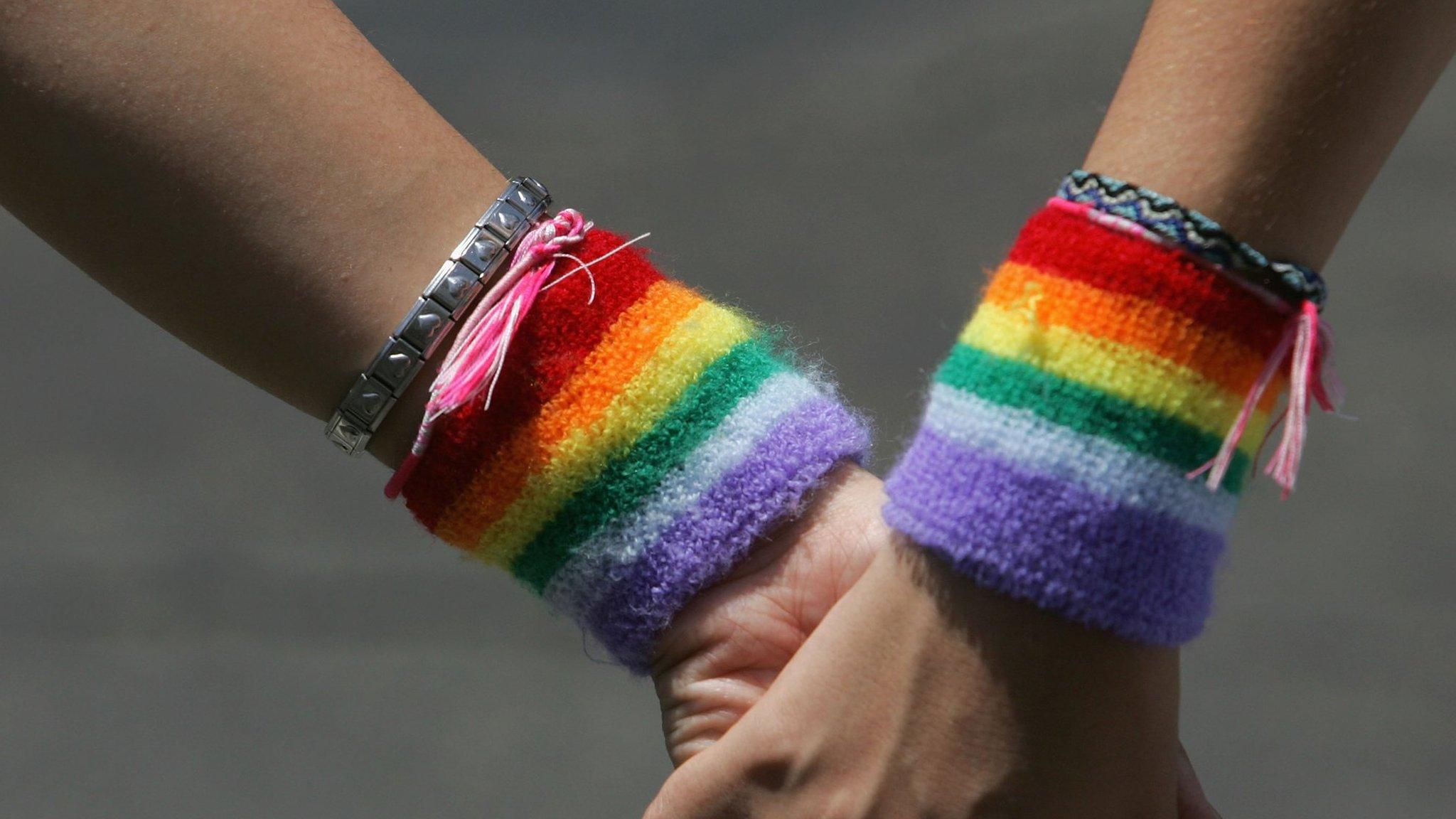Same-sex spouses have EU residence rights, top court rules
- Published
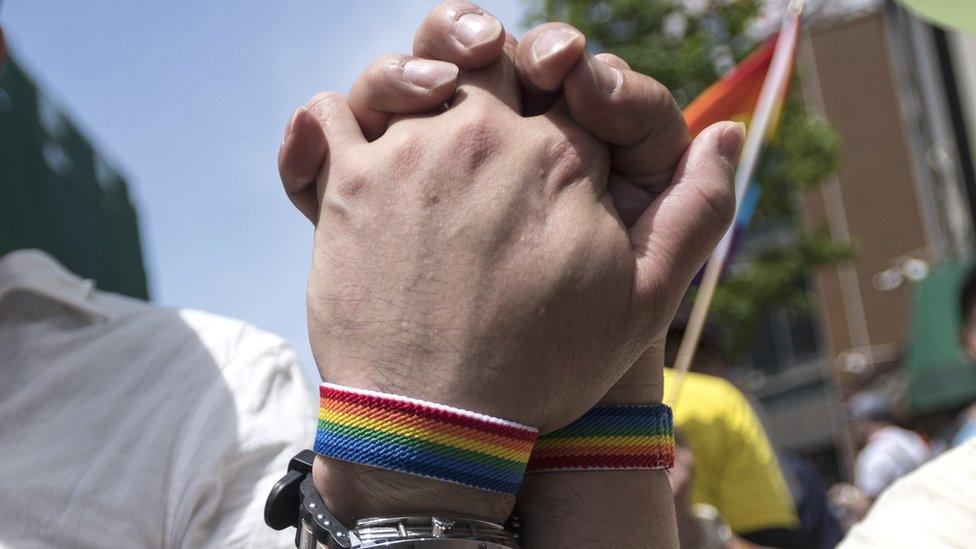
The European Court of Justice has ruled that same-sex partners have residency rights
The European Union's top court has ruled in favour of a Romanian gay man's right to have his US husband live with him in Romania.
The country, which does not recognise same-sex marriage, had argued that the American was not entitled to the EU residency rights awarded to spouses.
But the European Court of Justice said the term "spouse" was gender neutral.
Adrian Coman and his American partner Clai Hamilton were married in Brussels in 2010.
Following the judgment on Tuesday, Mr Coman said: "We can now look in the eyes of any public official in Romania and across the EU with certainty that our relationship is equally valuable and equally relevant.
"We are grateful to the EU Court and to the many people and institutions who have supported us, and through us, other same-sex couples in a similar situation," he said, adding: "It is human dignity that wins today."
What was the court ruling?
The European Court of Justice (ECJ) ruled on Tuesday that member states should recognise gay marriages contracted in fellow EU states, and grant couples the same residency rights that other families enjoy.
"Although the member states have the freedom whether or not to authorise marriage between persons of the same sex, they may not obstruct the freedom of residence of an EU citizen by refusing to grant his same-sex spouse, a national of a country that is not an EU Member State, a derived right of residence in their territory," the court said.
In January, a senior adviser to the ECJ, Advocate General Melchior Wathelet, said that the term "spouse" could include - under the freedom of residence rules for EU citizens and their family members - spouses of the same sex.
What is the case's background?
Speaking ahead of Tuesday's announcement, Mr Coman, a Romanian national, said he had taken the case to Romania's constitutional court in 2016 after the country refused to recognise his husband as his spouse.
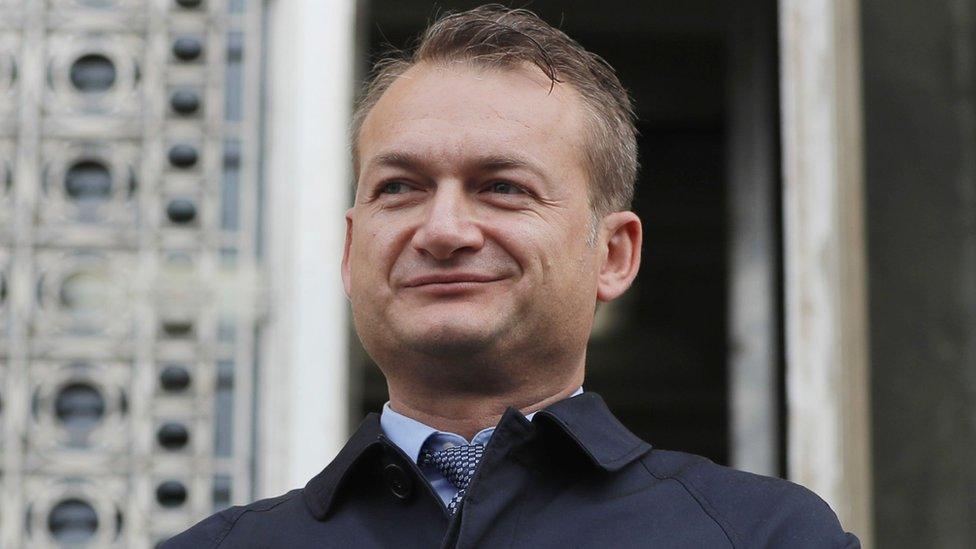
Mr Coman addresses journalists outside Romania's constitutional court in 2016
"I worked for the European parliament and when that contract ended I was looking where I could go together with my husband, Clai," he said, adding that Romania was one of the options they had chosen.
EU law permits a non-EU spouse of an EU citizen to join his or her spouse in the member state where the European national resides.
But the Romanian authorities refused a request for a residence permit for Mr Hamilton, saying he could not be recognised as the spouse of an EU citizen because Romanian legislation prohibits marriages between same-sex couples.
The couple challenged the decision, saying it was discriminatory on the grounds of sexual orientation. Romania's constitutional court then referred the case to the ECJ.

Where does Europe stand on same-sex unions?
Same-sex marriage is legal in these EU states: Belgium, Denmark, Finland, France, Germany, Ireland, Luxembourg, Netherlands, Portugal, Spain, Sweden, UK (excluding Northern Ireland) and Malta
Registered partnerships (with similar rights to marriage): Austria, Croatia, Cyprus, Greece, Hungary, Italy, Slovenia
Registered partnership (limited rights): Czech Republic, Estonia
No legislation: Bulgaria, Latvia, Lithuania, Poland, Romania, Slovakia
Source: ILGA Europe, external
- Published11 January 2018

- Published30 June 2017
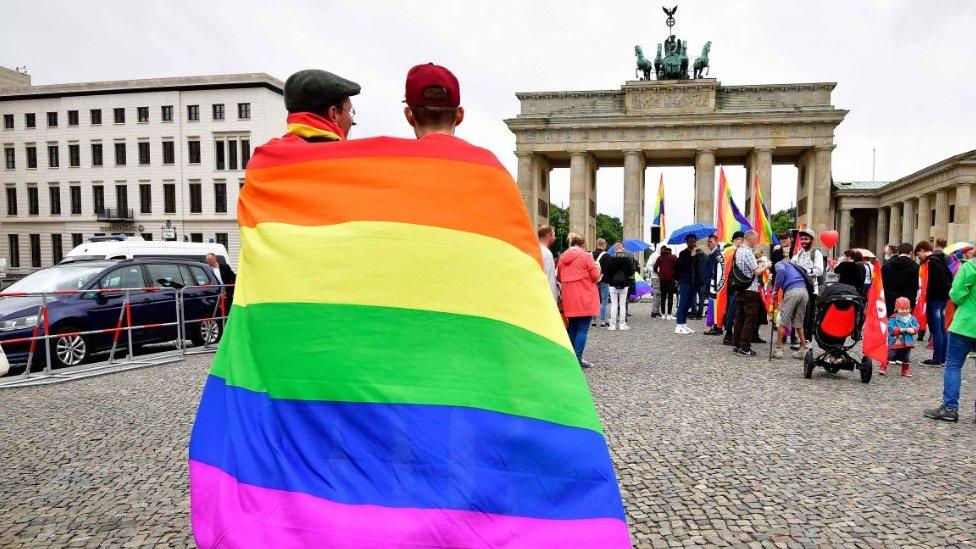
- Published23 August 2017

- Published5 December 2017
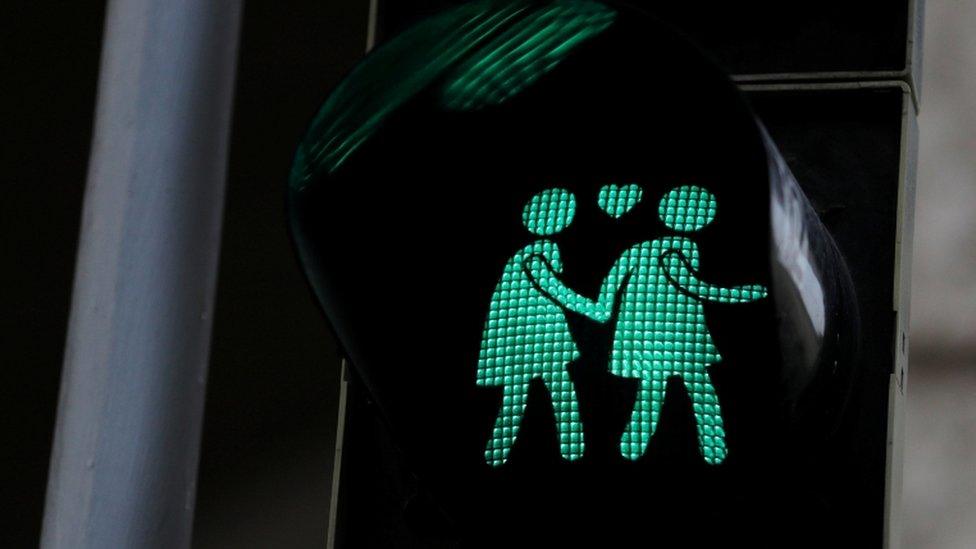
- Published1 October 2017
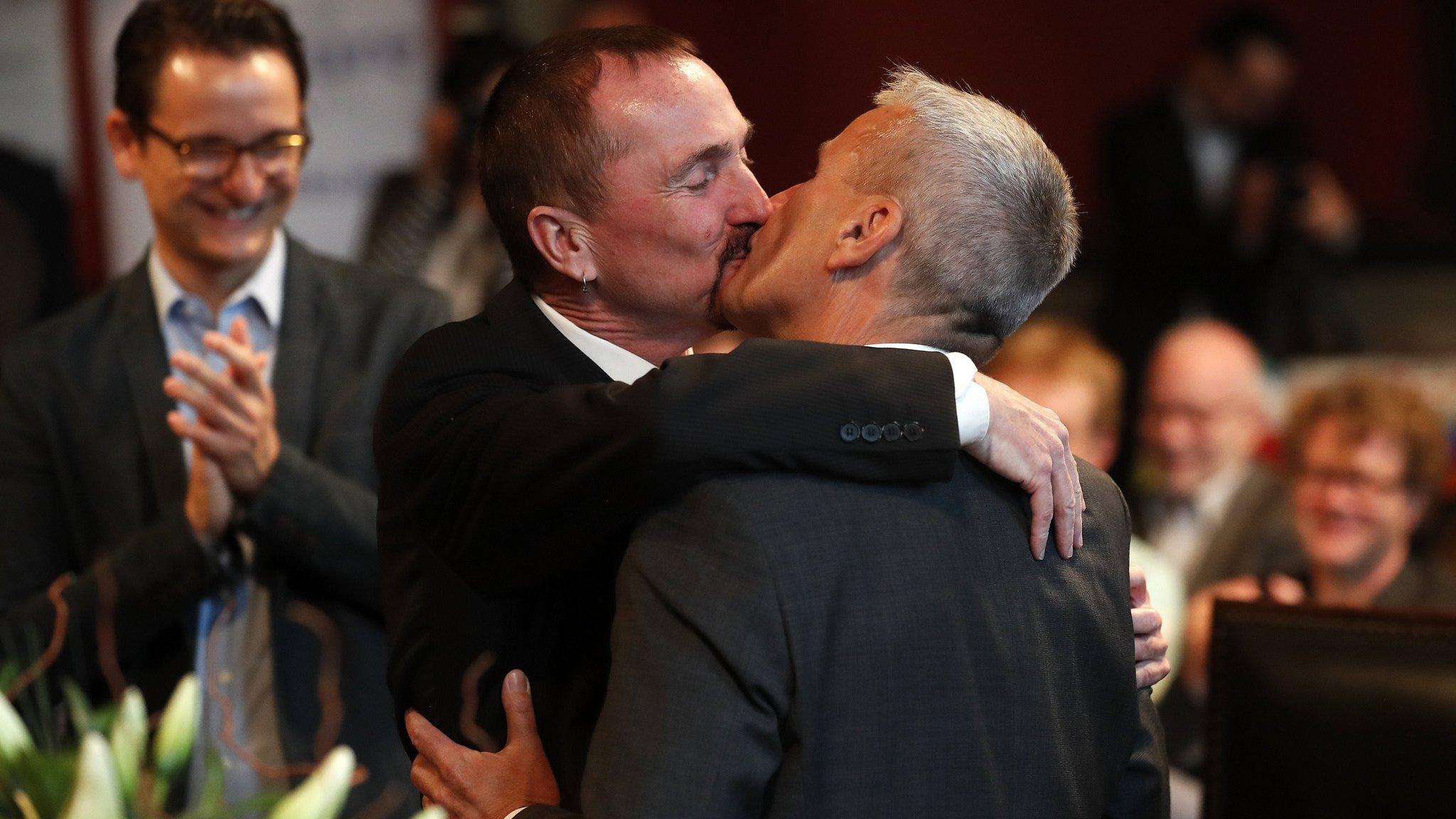
- Published29 July 2017
